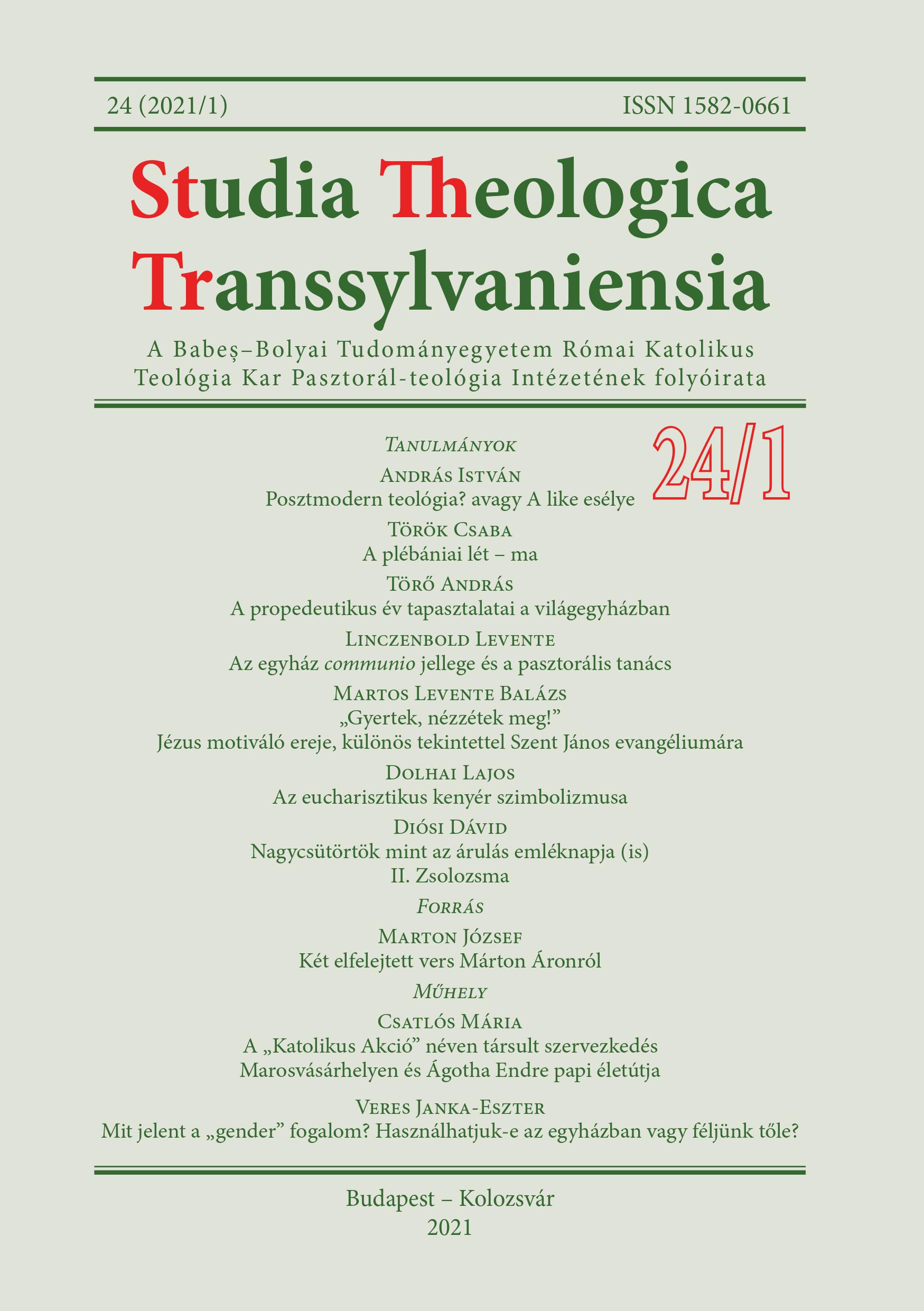Az egyház communio jellege és a pasztorális tanács
DOI:
https://doi.org/10.52258/stthtr.2021.1.04Kulcsszavak:
pastoral council, pastoral plan, communio, synodality, representationAbsztrakt
The Second Vatican Council and subsequent documents, in view of the pastoral challenges, strongly recommend the establishment of a pastoral council in the dioceses, in which mainly the laity should be involved. The task of the council is to raise and discuss issues concerning pastoral work and to reach practical conclusions. In the interpretation of the Church as communio, the juridical figure of the pastoral council is an important institution, since based on the theological structure of the communio, its members can assist the bishop in the pastoral care of the diocese with their opinions and remarks by virtue of their universal mission received in baptism. The notion that the mission stemming from the general priesthood would imply such representative character which would signify the exercise of ecclesiastical power is erroneous. The reference to the individual or collective interests of advisory bodies is the real expression of the Church's communio insofar as it serves the common good of the Church. Otherwise, we are dealing only with a misunderstood conception of "democracy" that interprets communion in the Church merely on a humanistic, anthropological level, and considers the decentralization of power to be its fundamental task. With regard to the pastoral council, the principle of synodality is closely linked to the communio nature of the Church, as issues concerning pastoral care must be thoroughly discussed together, and decision-making mechanisms must be well prepared, which serves as basis for the diocesan bishop to be able to make the desired decision.
Downloads
Megjelent
Hogyan kell idézni
Folyóirat szám
Rovat
License
Copyright (c) 2021 Levente Linczenbold

This work is licensed under a Creative Commons Attribution 4.0 International License.






